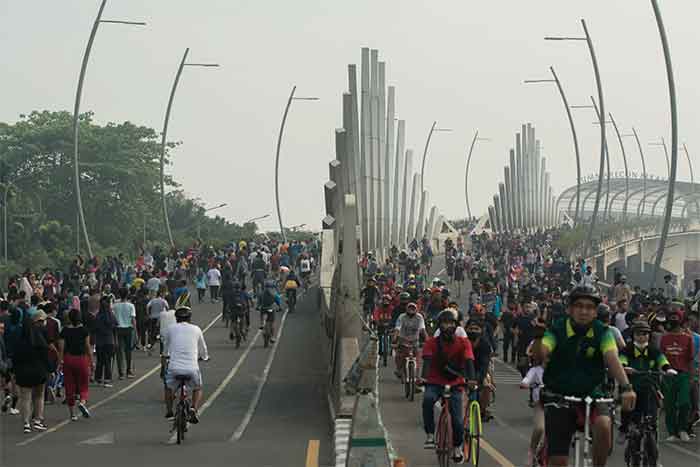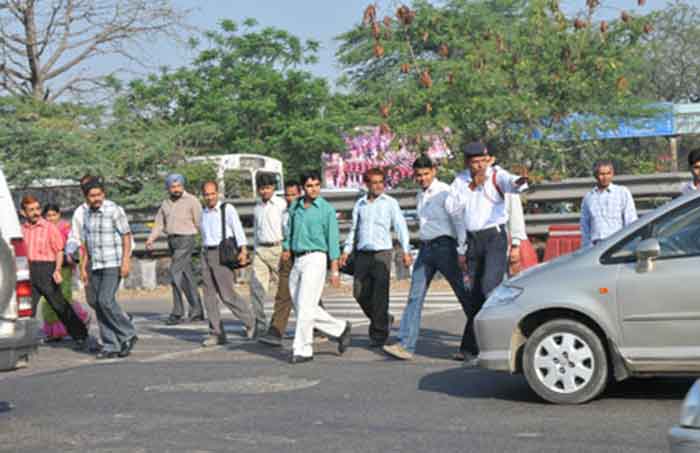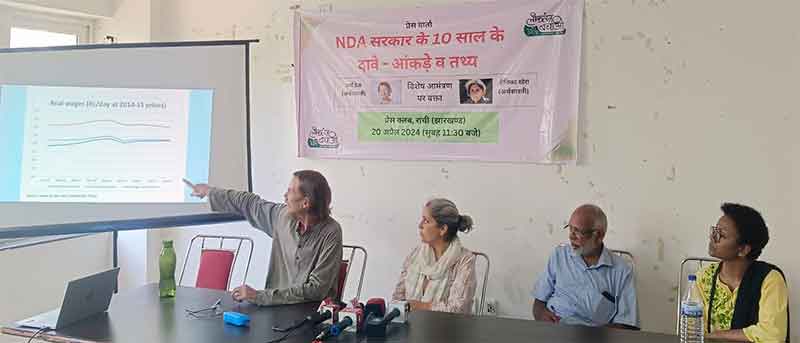
Today, September 22 is the World Car Free Day. It is celebrated in many cities around the world to create awareness about how our locality will look and feel like without cars. It started on an ad hoc basis after the 1973 oil crisis. Only in 2000 it became a self-standing day held on September 22. On this day a large number of cities around the world are invited to close their centres to cars. Pedestrians, bicycles, public transit and other forms of sustainable transportation are encouraged on this day. People can reflect on what their city would look like with a lot fewer cars, and what might be needed to make this happen. Advocates claim that over 100 million people in 1,500 cities celebrate International Car-Free Day, though on days and in ways of their choice.
In India the Car Free Days have been observed from 17 November 2013 onwards. Raahgiri Day (‘Raahgiri’ being Hindi for ‘Way of the road’), the first sustained car free day in India was launched in Gurgaon. Subsequently, Raahgiri days have been held in 70 cities in 18 states across India. Many cities around the world and in India are observing car free day once a week on some streets in the city. In India Bangalore and Hyderabad are doing this. It becomes a fair and a festival with music, dancing, sale of organic products and food etc.
Dedicated Cyclist
I propose we should start a group called Voluntary Dedicated Cyclists. This will be like a sub set of Voluntary Simplicity. But first we should define a dedicated cyclist. A dedicated cyclist is one who does not own any fossil fuel vehicle, does not have a driving licence for these FF vehicles and the bicycle is his main mode of transport. Of course s/he also walks and when needed uses public transport or hires a cycle rickshaw, auto rickshaw or even a taxi/cab. Obviously in a country like India majority of people are dedicated cyclists. Many poor don’t even own a cycle though many of them would like to own one.
For people of my generation it was natural to be a dedicated cyclist. I grew in Indore during the fifties. There were very few cars or motorcycles. Scooters had yet to make an appearance. I moved to IIT Kharagpur in 1961. It is a small campus town and in those days even our professors came on a bicycle or cycle rickshaw! Then by late sixties I had become an activist. I never got a chance to acquire a FF vehicle or a licence for them. So by default I am a ‘Voluntary Dedicated Cyclist’!
Voluntary Dedicated Cyclist
To define, a Voluntary Dedicated Cyclist is someone who would have ‘normally’ acquired a FF vehicle but chose not to. There are very few such people. Among my friends there are only three men and two women! Today it should include those people who had once owned a FF vehicle but have given it up due to awareness of the issues. I know only two such person.
As I said above, we should create a group of VDCs and increase our tribe. We should be in the forefront of a carless cities movement. But first we should increase our numbers during the Car Free Day. Our first ‘constituency’ will be those who come to theses fests and enjoy themselves but also own FF vehicles. We can distribute a pamphlet like this:
DO YOU OWN A CAR?
Hope you are enjoying the Car Free Day! The festive atmosphere, pollution free air and the friendly faces all around!
Do you also own a fossil fuel vehicle? A car, a motorcycle, a scooter or a scooty and God forbid but may be an SUV?
If yes, we would like you to consider giving it up gradually. The steps could be:
- Start with limiting the budget for petrol.
- Before taking a car trip consider if you can avoid/combine it with some other task.
- Plan carless days in a week.
- Hopefully over a period of time your vehicle will be gathering dust in the garage.
- Then sell it and buy a bicycle with the money. If extra money is there then consider gifting a bicycle to a needy person.
Thank you!
Voluntary Dedicated Cyclists Club
*****
Other Objectives
We have to work on the twin objectives of reducing the cars and increasing the bicycles. Reducing cars is difficult and ultimately their number will come down due to increasing price of petrol and unavailability of petrol. In India the companies which produce big cars are winding up. General Motors has left and now Ford has announced winding up. The sale of big cars in India is very small though they are very visible.
We have to focus on poor people who need bicycles. We should focus only on the sturdy roadsters – both ladies and gents. We can demand reduction of GST on roadsters, start a gift programme of bicycles to the needy poor, encourage school bicycle programme with our local government and state government. We should also help the poor bicycle repair workers with better facilities from the government – like rent free kiosks at important places, bicycle parking stations etc.
Any takers?
T. Vijayendra (1943- ) was born in Mysore, grew in Indore and went to IIT Kharagpur to get a B. Tech. in Electronics (1966). After a year’s stint at the Saha Institute of Nuclear Physics, Kolkata, he got drawn into the whirlwind times of the late 60s. Since then, he has always been some kind of political-social activist. His brief for himself is the education of Left wing cadres and so he almost exclusively publishes in the Left wing journal Frontier, published from Kolkata. For the last nine years, he has been active in the field of ‘Peak Oil’ and is a founder member of Peak Oil India and Ecologise. Since 2015 he has been involved in Ecologise! Camps and in 2016 he initiated Ecologise Hyderabad. He divides his time between an organic farm at the foothills of Western Ghats, watching birds, writing fiction and Hyderabad. He has published a book dealing with resource depletions, three books of essays, two collections of short stories, a novella and an autobiography. Vijayendra has been a ‘dedicated’ cyclist all his life, meaning, he neither took a driving licence nor did he ever drive a fossil fuel based vehicle.
Email: [email protected]











































